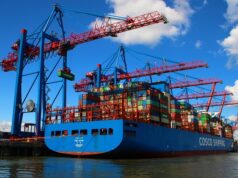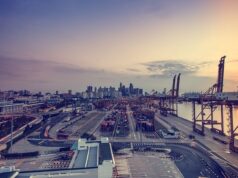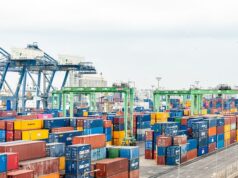Educating customs officials and customs brokers through regular training is positively associated with lower border and documentary compliance times, according to a recent case study by the World Bank (WB).
“Training is also related to the successful implementation of trade reforms,” the U.S.-based lender said in its case study titled “Doing Business 2019: Trading Across Borders” written by Iryna Lagodna, Nuno Mendes dos Santos, Esperanza Pastor Nuñez de Castro, Tiffany Yang, Marilyne Youbi, and Inés Zabalbeitia Múgica. The case study complements and used data from WB’s recent report, “Doing Business 2019: Training for Reform,” which measures 190 economies’ regulatory quality and efficiency.
The case study noted that most of the economies that implemented trade reforms, as captured by the Doing Business report, provide regular training to customs clearance officials.
Cross-border trade is a complex endeavor and, according to the United Nations Conference on Trade and Development (UNCTAD), the average international trade operation involves between 20 and 30 parties. The study noted that customs clearance officials and customs brokers are two of the most important parties involved in a typical international trade transaction.
It said Doing Business data show that education and training, together with communication with customs clearance officials and customs brokers, play an important role in the successful implementation of trade-related reforms.
“Education and training facilitate the implementation of new policies as well as the development of the specific skills or knowledge required to make those policies operational,” the study said.
Training can target various staff levels—from senior to operational staff—and encompass different types of programs, including technical training on daily operations, training linked to implementing new processes or training new staff.
Knowledge and adoption link
Training can also support the successful implementation of trade-related reforms by communicating relevant information about new programs and their requirements. The study noted that “simply knowing more about reforms could make government employees more likely to adopt them.”
“A well-trained and educated workforce is equipped with the knowledge to perform their day-to-day duties as well as to increase the efficiency of the overall trade process. By developing workers’ competencies and skills, training can act as a catalyst for improved organizational productivity,” the case study pointed out.
For example, the study noted that Morocco customs has been implementing a series of reforms in the area of human resources and communication since the 1990s. Together with introducing an online declaration system and strong anti-corruption measures, efficiency of customs service has substantially improved and revenue collection increased.
Training has also been pivotal when introducing new electronic systems, such as customs management systems or national electronic single windows. Doing Business data show that many economies—including Afghanistan, Grenada, and Jamaica in 2016, Cabo Verde and the Comoros in 2017, and Angola and Lesotho in 2018—have experienced reductions in the time it takes to prepare documentation following training programs or pilot tests when implementing the Automated System for Customs Data (ASYCUDA). Brazil, Brunei, and Kenya also experienced positive results after implementing national electronic single window systems in 2017; by increasing awareness of the new platforms through training and seminars, they reduced documentary compliance time as measured by Doing Business.
The new “dynamic” role of customs agencies—from the traditional revenue collection, border management and fraud prevention to streamlining clearance processes—demands that customs clearance officials maintain a high level of efficiency, knowledgeability and accountability, “underscoring the need for well-educated customs personnel.”
Stakeholder education needed, too
Aside from training customs personnel, the study said educating stakeholders to adopt trade reforms effectively should be a central government priority “since trade facilitation catalyzes economic growth.”
Since governments are tasked to design and implement their national trade facilitation programs, “they are often best placed to lead stakeholder education and communication strategies through their customs administrations and National Trade Facilitation Committees.”
Furthermore, the case study pointed out that governments have a stake in educating service providers and users, since the effective implementation of trade reforms will ultimately boost trade volumes.
Providing adequate training—especially to firms with limited trading experience—can, for example, result in fewer errors when firms are completing customs documents, contributing to time savings and increased trade volumes.
Although governments remain the most important source of capacity-building training for customs officials and customs brokers, opportunities also exist for private sector involvement, the case study noted.
Meanwhile, the case study said requirements for licensing, examinations and training for customs brokers are fundamental, “as a lack of these can lead to delays in the clearance process.”
The case study noted that the customs broker profession is evolving with ongoing customs reforms, the Internet and e-commerce, prompting some customs brokers to offer more sophisticated services (advisory, for example) rather than merely filing documents for customs clearance.
Customs brokers are expected to also support the interests of governments by ensuring compliance with regulations and payment of duties and taxes.
“It is not, therefore, surprising that many economies require more than one qualification (for example a license and an exam) to operate as a customs broker,” the study noted.
The World Customs Organization recommends that any customs reform or modernization be accompanied by the necessary training and sharing of information between governments and customs brokers.
Furthermore, the International Trade and Customs Broker Association recommends establishing capacity-building initiatives for customs brokers through certification programs and examinations.
Doing Business data indicate that the average time for documentary compliance is 41% lower in economies that offer training to customs brokers compared to those where training is not available.
“This suggests that training could be beneficial in terms of familiarizing brokers with new regulation that could enhance their efficiency in complying with documentary requirements,” the study said.
PH’s border compliance rated difficult
In the latest Doing Business report, the Philippines’ rank in the trading across border pillar dropped to 104th, down from 99th in last year’s report. It noted that “the Philippines made trading across borders more difficult by increasing the number of inspections for importing, thereby increasing the average time for border compliance.”
In particular, the time it takes for import border compliance has increased to 120 hours from 72 hours in the previous report. Documentary compliance for imports remains at 96 hours.
For exports, the time it takes for documentary compliance improved to 36 hours from 72 hours in the 2018 report.
Costs, meanwhile, remained the same. For exports, documentary compliance cost remained at US$53 and border compliance cost was at $456. For imports, documentary compliance cost was still $50 and border compliance cost at $580.









